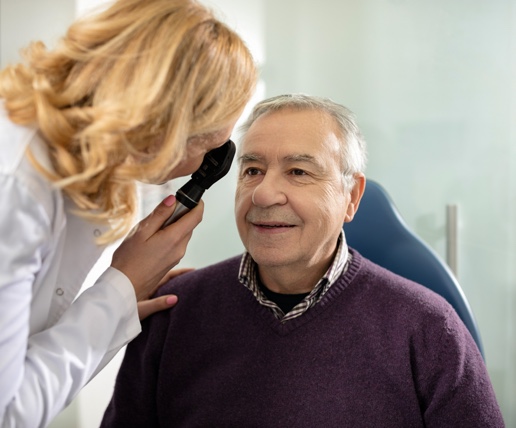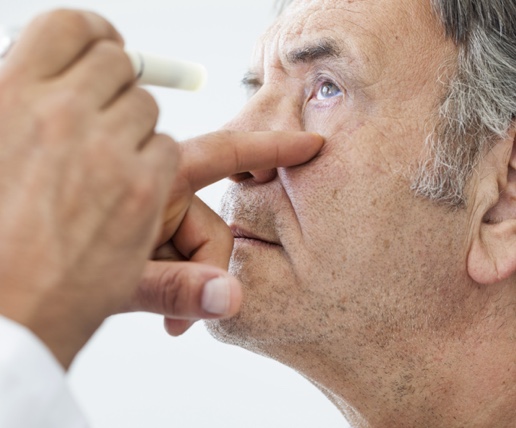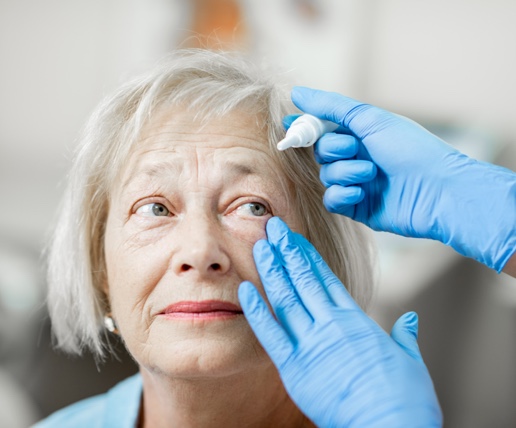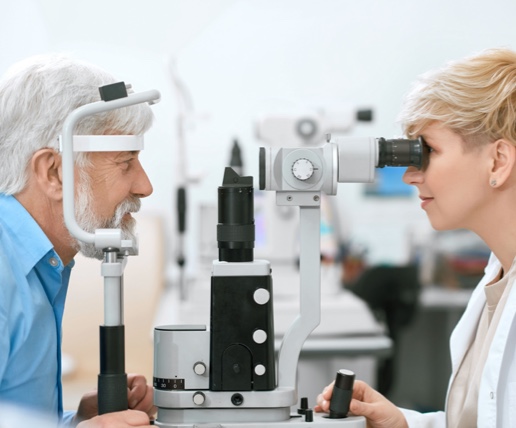
When it comes to ageing, eyesight is often one of the first senses to deteriorate. In fact, around one in three people has some form of vision-reducing eye disease by the age of 65. In some cases, the symptoms can be easily managed with appropriate treatment, while other more serious conditions are incurable and may lead to permanent damage and the need for relevant lifestyle changes.
Here are the most common age-related eye diseases, what to look out for and the most effective treatments.
Here are the most common age-related eye diseases, what to look out for and the most effective treatments.



1. Glaucoma
Glaucoma is a result of increased eye pressure, which can damage the optic nerve. This leads to vision loss and even blindness. Glaucoma may be asymptomatic at first, with seniors not knowing they have the disease. As times goes on, a person with glaucoma may notice their peripheral vision becoming impaired. Left untreated, this tunnel vision will worsen. Fortunately, there are oral medications and eye drops that can be used to successfully treat the disease. In some cases, it may require a small surgery to be performed too. Trabeculoplasty uses a laser to reduce pressure by improving the flow of fluids out of the eye. Another operation, called trabeculectomy, creates a new drainage path in the eye under the eyelid to relieve pressure.
Glaucoma is a result of increased eye pressure, which can damage the optic nerve. This leads to vision loss and even blindness. Glaucoma may be asymptomatic at first, with seniors not knowing they have the disease. As times goes on, a person with glaucoma may notice their peripheral vision becoming impaired. Left untreated, this tunnel vision will worsen. Fortunately, there are oral medications and eye drops that can be used to successfully treat the disease. In some cases, it may require a small surgery to be performed too. Trabeculoplasty uses a laser to reduce pressure by improving the flow of fluids out of the eye. Another operation, called trabeculectomy, creates a new drainage path in the eye under the eyelid to relieve pressure.
2. Cataracts
Cataracts are one of the most common causes of vision impairment around the world. Symptoms generally include complaints about glare, fuzzy vision, double vision in one eye or sensitivity to light. This is caused when the usually transparent eye lens becomes clouded, eventually obscuring the transmission of light through the lens. If the cataract causes severe vision loss, a fairly simple surgery can remove it. Some ways to help reduce the chances of getting cataracts include, quitting smoking, lowering alcohol intake, staying hydrated and getting regular eye exams.
Cataracts are one of the most common causes of vision impairment around the world. Symptoms generally include complaints about glare, fuzzy vision, double vision in one eye or sensitivity to light. This is caused when the usually transparent eye lens becomes clouded, eventually obscuring the transmission of light through the lens. If the cataract causes severe vision loss, a fairly simple surgery can remove it. Some ways to help reduce the chances of getting cataracts include, quitting smoking, lowering alcohol intake, staying hydrated and getting regular eye exams.
3. Macular Degeneration
This serious eye disease affects the macular area of the eye. The macular area is located in the centre of the retina which is responsible for focused central vision. Macular Degeneration typically leads to extensive vision loss. In severe cases, a person may lose all central vision and only retain peripheral vision. This makes it very difficult to perform everyday tasks such as reading and driving. While there is no cure for macular degeneration, there are some treatments and laser surgeries that may prevent severe vision loss or slow the progression of the disease considerably.
This serious eye disease affects the macular area of the eye. The macular area is located in the centre of the retina which is responsible for focused central vision. Macular Degeneration typically leads to extensive vision loss. In severe cases, a person may lose all central vision and only retain peripheral vision. This makes it very difficult to perform everyday tasks such as reading and driving. While there is no cure for macular degeneration, there are some treatments and laser surgeries that may prevent severe vision loss or slow the progression of the disease considerably.
4. Diabetic Retinopathy
Diabetic Retinopathy can develop in any senior that suffers from type 1 or type 2 diabetes. The longer they have had diabetes for, and the less controlled their blood sugar is, the more chance seniors are likely to develop this eye complication. The condition causes damage to the blood vessels in the retina (the light-sensitive part of the eye), which can result in vision loss and even blindness. At first, diabetic retinopathy may cause no symptoms or only minor vision problems. These include blurred vision, impaired colour vision, fluctuating vision, floating spots, and vision loss. Preventative measures include proper management of diabetes, blood sugar levels, blood pressure levels and cholesterol. Quitting smoking can also help, and regular vision tests are essential.
Diabetic Retinopathy can develop in any senior that suffers from type 1 or type 2 diabetes. The longer they have had diabetes for, and the less controlled their blood sugar is, the more chance seniors are likely to develop this eye complication. The condition causes damage to the blood vessels in the retina (the light-sensitive part of the eye), which can result in vision loss and even blindness. At first, diabetic retinopathy may cause no symptoms or only minor vision problems. These include blurred vision, impaired colour vision, fluctuating vision, floating spots, and vision loss. Preventative measures include proper management of diabetes, blood sugar levels, blood pressure levels and cholesterol. Quitting smoking can also help, and regular vision tests are essential.
At Totalcare, we offer 24-hour care with access to doctors, nurses, occupational therapists, and specialists. These professionals perform regular physical examinations and can help detect and provide treatment for common eye-related diseases. Learn more about our seven luxurious Assisted Living and Frail Care centres here.
